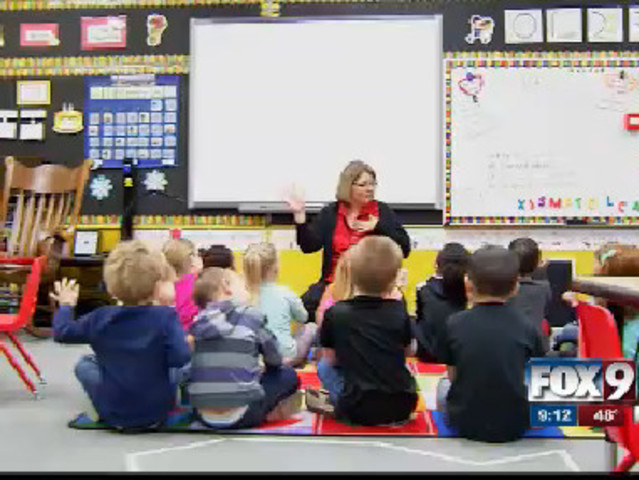The preschool classroom at Hawthorne Elementary is one busy place.
Three and four-year-old children are busy learning in a new pilot project launched by the Boise School District in November.
The program was privately and publically funded by the City of Boise and sponsors like Micron and the United Way of Idaho.
One mom explained her child is suddenly able to sound out letters and write.
The majority of Idaho children do not have this kind of learning opportunity.
“Idaho is at the bottom of the barrel when it comes to investing in early learning," Executive Director of the Idaho AEYE Beth Oppenheimer said.
Children advocacy groups argue that Idaho’s lack of pre-k education standards results in children being unprepared for kindergarten.
Roughly 46% of Idaho children are at grade level when walking through the doors of a kindergarten classroom.
“You have to understand that it all starts there,” Boise State University Bob Kustra explained.
Dr. Kustra has long advocated better pre-k educational opportunities and told lawmakers during a budget hearing that preschool should be the top priority of Idaho’s educational system.
When Dr. Kustra was asked about Idaho being one of five states that doesn’t fund early learning, his response was concise.
“It’s embarrassing. It’s disappointing,” Dr. Kustra said matter-of-factly. He argues if Idaho doesn’t invest into early education it may put the future of high education at risk.
Idaho’s Lieutenant Governor Brad Little is well aware of the problem and showed his support by speaking out at an early learning rally. However, he also understands that the problem cannot be fixed overnight.
“We know it works. But we have to get some things we know we need to do around reading remediation,” Lt. Little said.
Currently, Idaho is working to pass a $10 million bill to fund reading help for kindergarteners.
Supporters say it’s a good start, but only a Band-Aid to a bigger problem.
Research has found that for every dollar put into pre-k, the return on investment is between $7 and $14.
The savings comes from fewer remedial classes, better overall earning potential and reduced crime.
“At this point, we just can’t afford to not do it,” Oppenheimer explained.
Yet, for a third consecutive legislative session, no preschool plan has been pushed by legislators.
Dr. Kustra is frustrated with what he calls, “short term thinking.”
“Whoever is going to be in that legislature in ten years from now, they are going to pay more. Citizens are going to pay more for the inability of the legislature of today to deal with it now," Dr. Kustra said.



